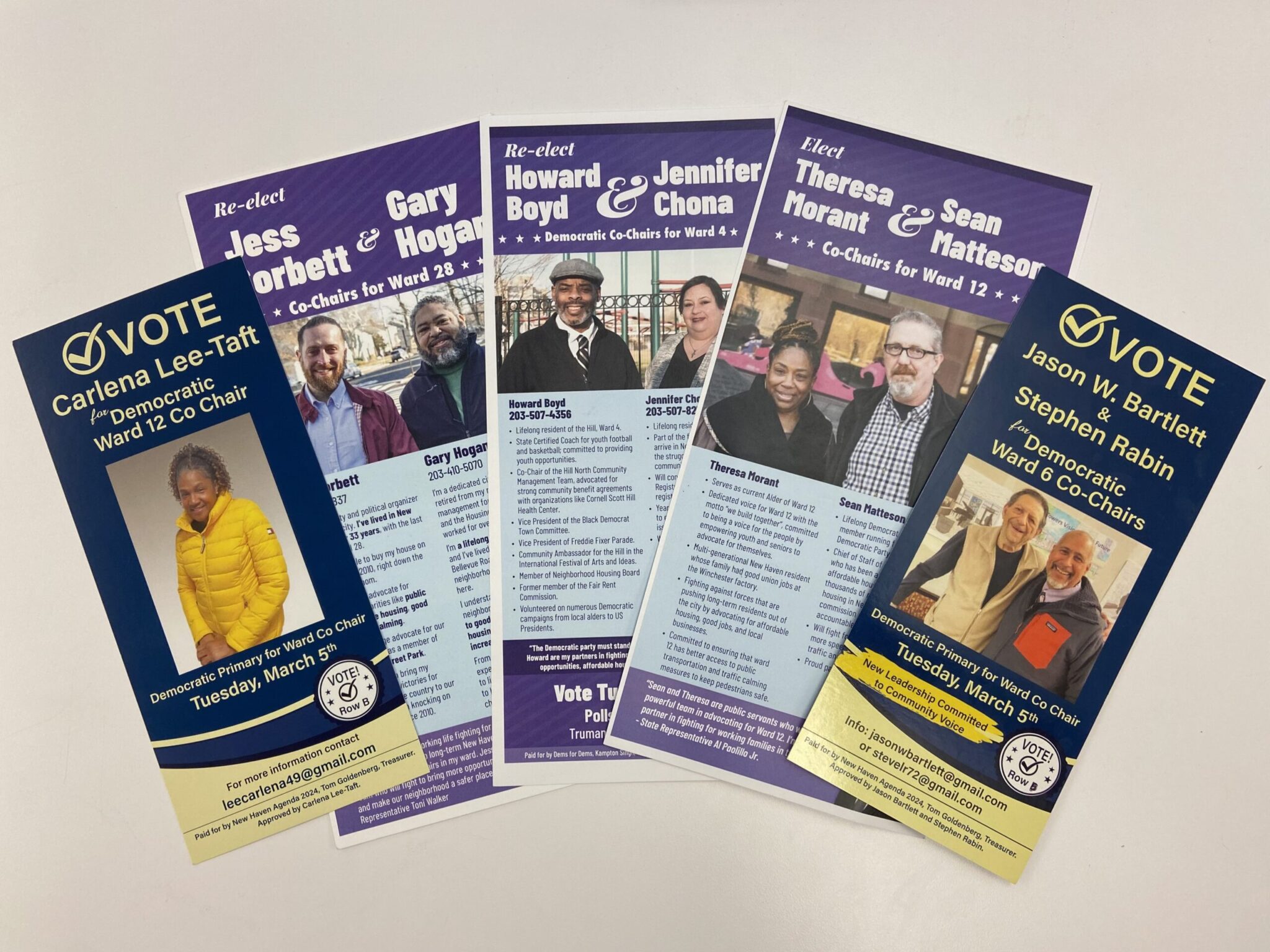What to know as New Haven Democrats pick ward co-chairs
Voters in eight wards are electing Democratic Town Committee co-chairs in an election pitting union-backed party organizers against challengers.

Chloe Edwards, Photography Editor
As voters across the country cast ballots for presidential nominees on Super Tuesday, Democrats in over a quarter of New Haven’s wards will turn to the local stage today, voting for city party organizers called ward co-chairs.
Two Democratic Town Committee co-chairs in each of the city’s 30 wards handle voter engagement and vote at party conventions on nominations for higher office. The election pits the current leadership, backed by Yale’s influential UNITE HERE unions, against a slate of challengers seeking to change the party’s direction.
The polls will be open from 6 a.m. to 8 p.m. in Wards 3, 4, 6, 7, 12, 18, 28 and 30, which cover the Hill, parts of downtown and East Rock, Quinnipiac Meadows, East Shore, Beaver Hills and West Rock.
Why are the elections happening?
Most years, Democratic Town Committee ward co-chairs go uncontested. But a new group, New Haven Agenda, announced in January that it would seek to dislodge incumbent co-chairs. Some of the slate’s candidates failed to collect the required signatures or had paperwork rejected for technical reasons, but 12 qualified for the ballot.
The New Haven Agenda candidates, broadly dissatisfied with the city’s current government, have brought to the campaign a variety of concerns about their neighborhoods, such as speeding cars, uncontained trash, poorly paved streets and the expansion of Tweed-New Haven Airport. The incumbent slate defends the record of city politicians supported by UNITE HERE.
Who are the candidates?
Jason Bartlett, a Ward 6 co-chair contender who leads New Haven Agenda, has a long history in Connecticut politics. Most New Haven Agenda candidates, however, are residents with scant political experience.
They include an artist, a dancer, a former lawyer, a community activist, a restaurateur and a bookkeeper. Tom Goldenberg, the defeated 2023 Republican and Independent mayoral candidate, is the slate’s treasurer, but not a co-chair candidate.
The incumbent slate, formally called Dems for Dems, consists largely of members and allies of UNITE HERE unions, some involved in city government. Among the party-backed candidates in wards with contested elections are Ward 12 Alder Theresa Morant, former Ward 6 Alder Dolores Colon and Sean Matteson, Mayor Justin Elicker’s chief of staff.
How have they campaigned?
Candidates on both slates have called voters and knocked on doors in their neighborhoods. Both sides held campaign events on Saturday, Feb. 24, in the Hill, the neighborhood south of downtown where three contested elections are happening. A rally for the party-backed slate drew about 50 people, while about 20 people attended a New Haven Agenda meet-and-greet.
According to financial filings, Dems for Dems raised $4,370.34 in individual contributions between Feb. 7 and 25. In the same period, New Haven Agenda took in $1,794 from individuals, almost half from Bartlett. The slates have spent money on yard signs, flyers and online advertising.
New Haven Agenda released a video last week in which Bartlett criticized political spending by UNITE HERE. He called the unions a “special interest group” and said they lead local officials to neglect certain community issues such as education and public safety — a characterization challenged by union allies.
What are the stakes?
Victories for any New Haven Agenda candidates would signal that some New Haven Democrats are ready to consider alternatives to the union-backed power structure that has been in place for over a decade. Conversely, if candidates on the incumbent slate prevail, the election could solidify the city’s political status quo.
Some, such as Ward 4 co-chair contender Joe Fekieta and former Mayor John DeStefano Jr., see the New Haven Agenda effort as preparation for another mayoral campaign by Goldenberg in 2025. He has not announced plans to run.
Even still, it is not clear whether 12 Democratic ward co-chairs of the 60 across the city could significantly sway a mayoral campaign in favor of a primary challenger.
The next election in New Haven, Connecticut’s Democratic and Republican presidential primaries, will come on Tuesday, April 2.







